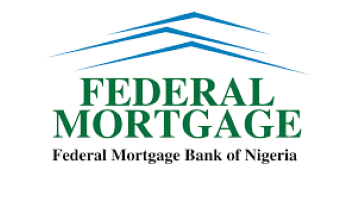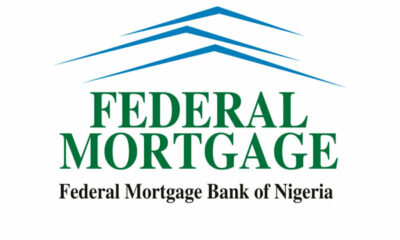Business
Federal Mortgage Bank of Nigeria: Ambitious Targets for Housing and Mortgage Loans

Federal Mortgage Bank of Nigeria: Ambitious Targets for Housing and Mortgage Loans
In an era where housing affordability and accessibility are pressing concerns for many Nigerians, the Federal Mortgage Bank of Nigeria (FMBN) has embarked on a bold mission to transform the country’s housing landscape. The bank has set ambitious targets to deliver 5,000 new homes annually and disburse 20,000 mortgage loans each year. This initiative, primarily spearheaded through the Renewed Hope Cities and Estates Programme, marks a significant commitment to improving the housing sector in Nigeria.
The Vision Behind the Targets
At a recent performance review meeting, the Minister of Housing and Urban Development, Arc. Ahmed Musa Dangiwa, laid out these directives to the management team of the FMBN. He emphasized the necessity for the bank to enhance its operational efficiency, which will involve reducing turnaround times for loans and improving customer service. These measures aim to facilitate greater accessibility and satisfaction for those seeking mortgage solutions.
This announcement transcends mere numbers; it signals a strategic approach to addressing Nigeria’s chronic housing deficit. As urbanization continues to climb, the need for well-planned housing projects and suitable financing options becomes increasingly critical.
Strengthening the National Housing Fund (NHF)
One of the pivotal components of the FMBN’s strategy is its plan to expand the National Housing Fund (NHF) collection. This initiative aims to broaden the subscription base, encouraging more Nigerians to contribute to the fund. Expanding the NHF’s reach means that more individuals can benefit from mortgage financing, thus bolstering home ownership in Nigeria.
The Minister also highlighted the importance of rolling out the Diaspora Mortgage Scheme swiftly. This scheme is designed to connect Nigerians living abroad with housing opportunities back home, capitalizing on remittances and investments from the diaspora that could further fuel the housing market. By engaging with the diaspora, the scheme aims to increase NHF collections while also providing much-needed housing solutions for returning citizens.
Project Completion and Legislative Support
Minister Dangiwa emphasized the importance of the FMBN completing existing projects before starting new ones in order to ensure accountability and project viability. This measure aims to address common challenges in the housing sector, where unfinished projects often result in resource waste and public distrust.
Moreover, Dangiwa encouraged the FMBN to advocate for legislative amendments to housing laws. The changing dynamics of the housing market necessitate updated regulations that can keep pace with modern needs and facilitate smoother operations. Digital transformation is also a key area of focus, as the FMBN looks to enhance the accessibility of its services. The Minister suggested that the bank digitalize its product and service offerings, including the NHF Scheme, enabling users to access resources online easily.
Recent Achievements and Future Goals
The Managing Director of FMBN, **Alhaji Shehu Usma Osidi**, shared insights into the bank’s recent performance and future aspirations during this review. In the first half of 2024, the FMBN delivered **810 housing units** in the first quarter and **741 units** in the second quarter, falling short of their quarterly target of **1,800 units**. However, the bank remains committed to completing ongoing projects while launching new ones in the coming months.
Furthermore, Osidi pointed out that **3,674 individuals** have benefited from mortgage loans, showcasing the immediate impact of the bank’s initiatives. The establishment of a **National Mortgage Registry** is another critical development that aims to enhance transparency and streamline the mortgage process in Nigeria.
Moving Forward: Key Focus Areas for Sustainability
Looking ahead, the FMBN’s success in achieving its ambitious goals hinges on several key factors:
1. Efficiency in Operations: The directive to improve customer service and reduce turnaround times is essential. Streamlined processes will not only enhance the experience of prospective homeowners but also build trust in the mortgage system.
2. Funding and Partnerships: Maintaining audited accounts and ensuring corporate stability will facilitate fruitful collaboration with financing institutions like the Shelter Afrique Development Bank, thus broadening the funding base for housing projects.
3. Legislative Support: Engaging with government bodies to amend existing housing laws will be pivotal in fostering a more conducive environment for housing development and financing.
4. Technological Advancement**: Investing in digital platforms will not only modernize the FMBN’s product offerings but also increase the overall efficiency of service delivery, allowing more Nigerians to access mortgage solutions with ease.
5. Community Engagement: To truly expand the NHF subscription net, the FMBN must engage with communities, informing them about the benefits and processes involved in home ownership and mortgage financing.
Conclusion
The Federal Mortgage Bank of Nigeria’s targets of delivering 5,000 new homes and facilitating 20,000 mortgage loans annually represent a significant stride towards tackling Nigeria’s housing challenges. With a comprehensive strategy that includes expanding the NHF collection, improving project completion rates, and embracing technology, the FMBN is positioning itself to make a meaningful impact on the housing sector.
As the FMBN moves forward with its plans, the commitment of all stakeholders—from government authorities to private citizens—will be crucial in realizing a future where affordable and accessible housing is a reality for every Nigerian. The journey ahead will be challenging, but with clear targets and a strategic focus, the FMBN is poised to play a transformative role in shaping a better housing landscape in Nigeria.




